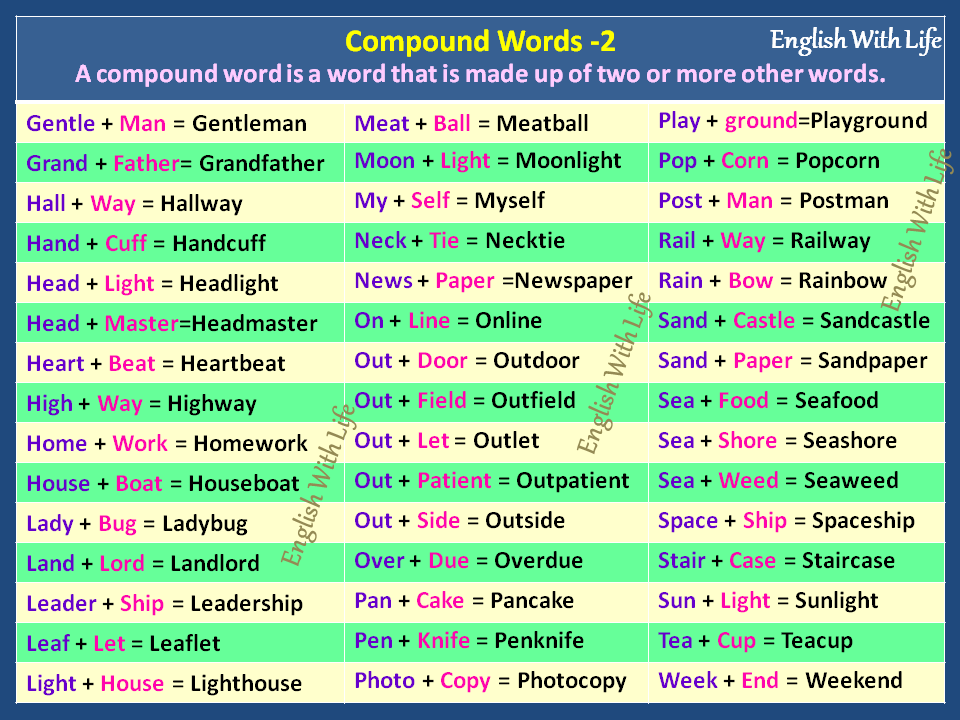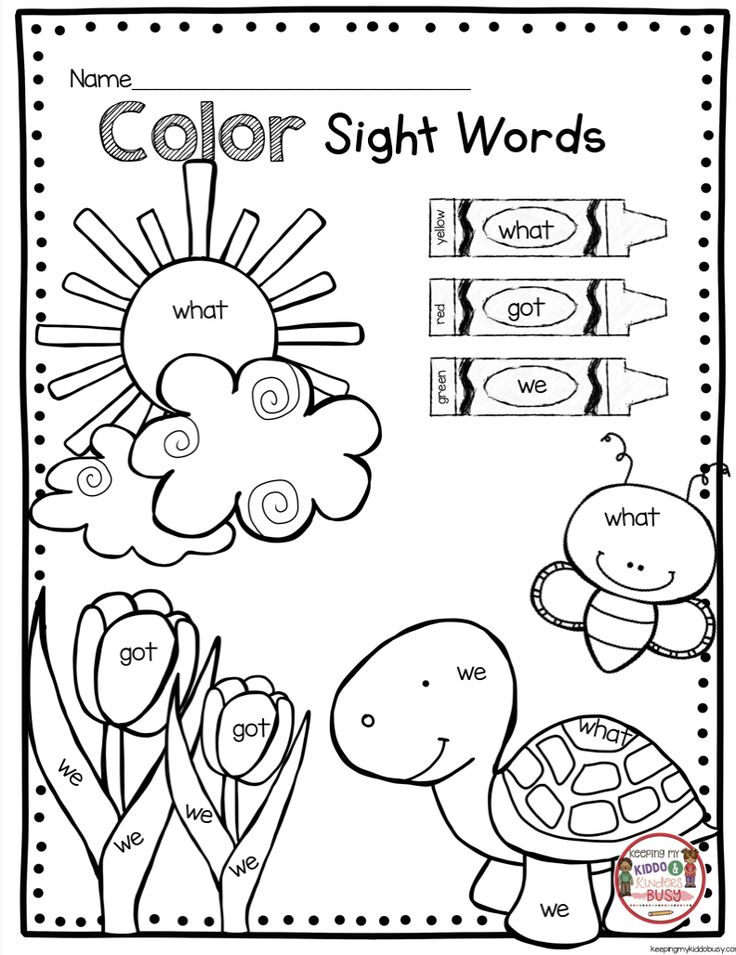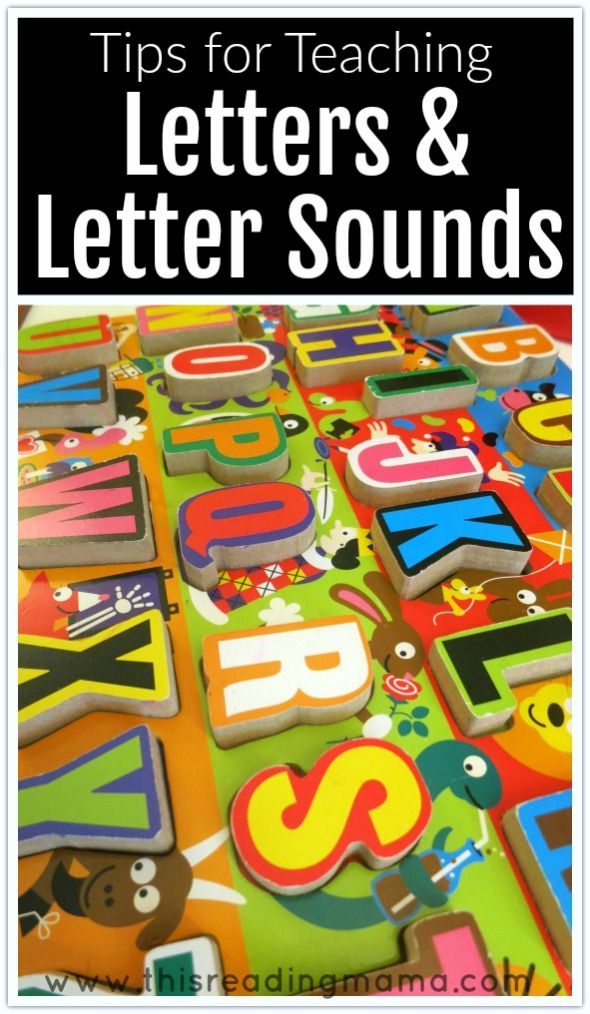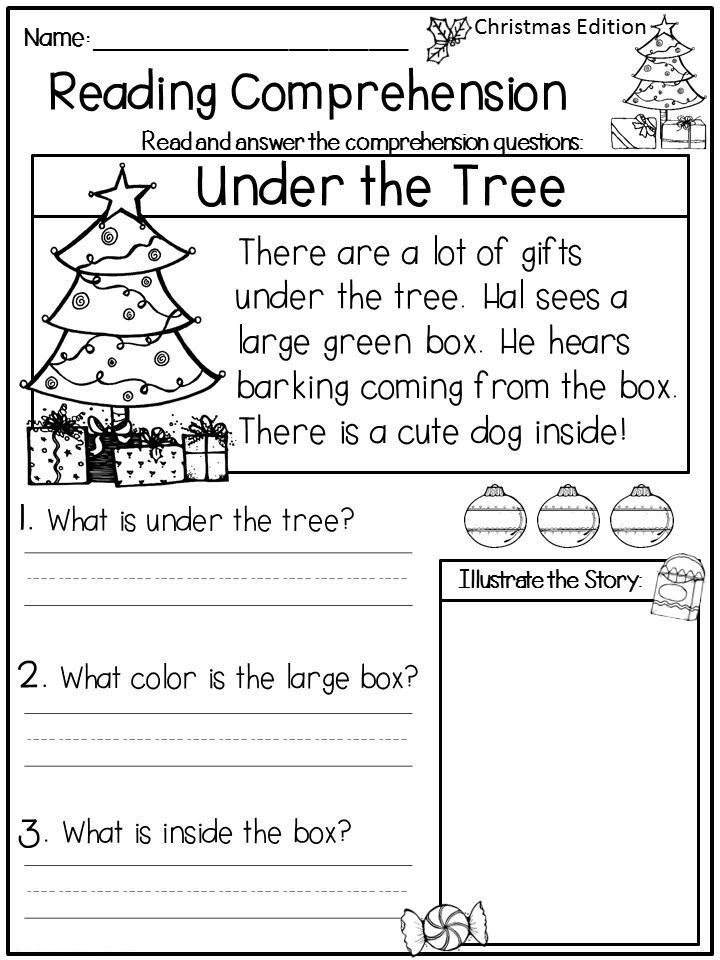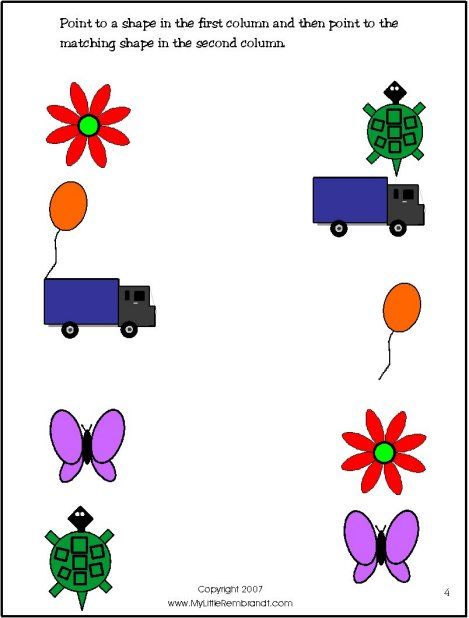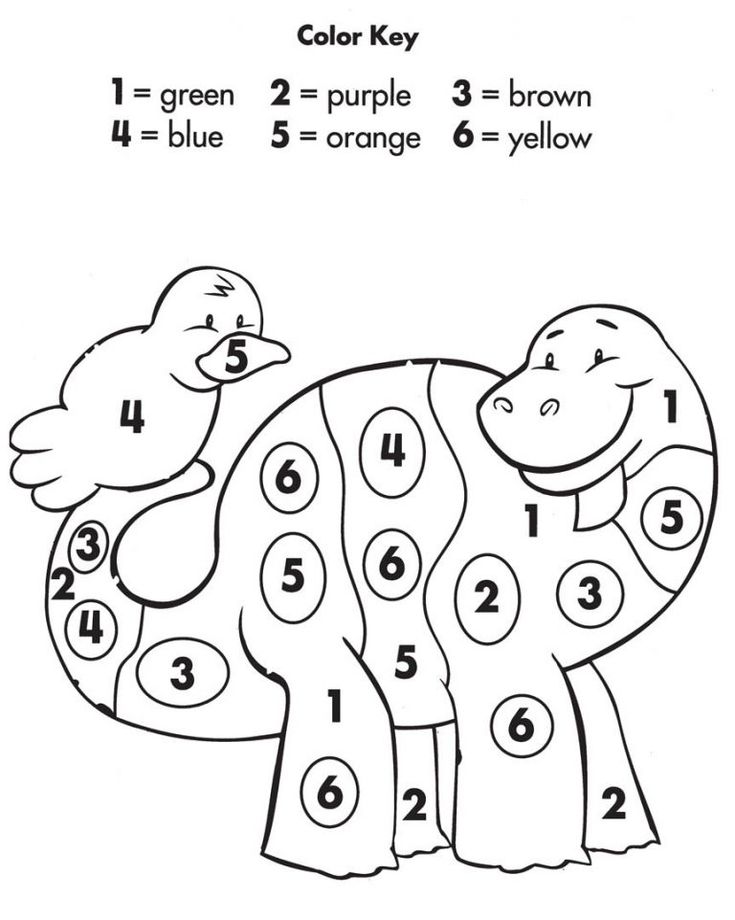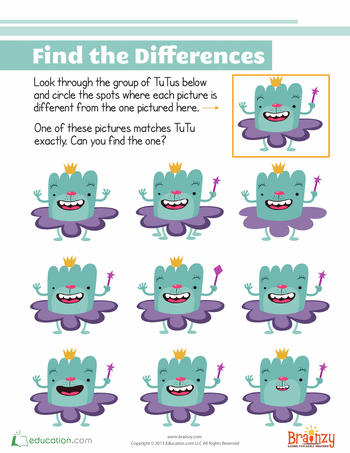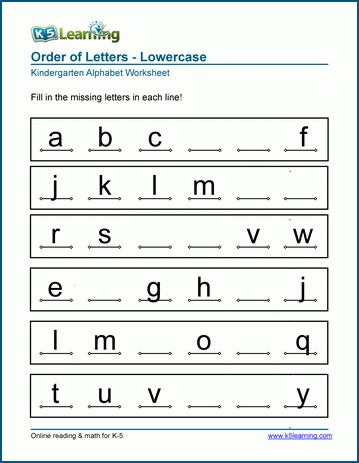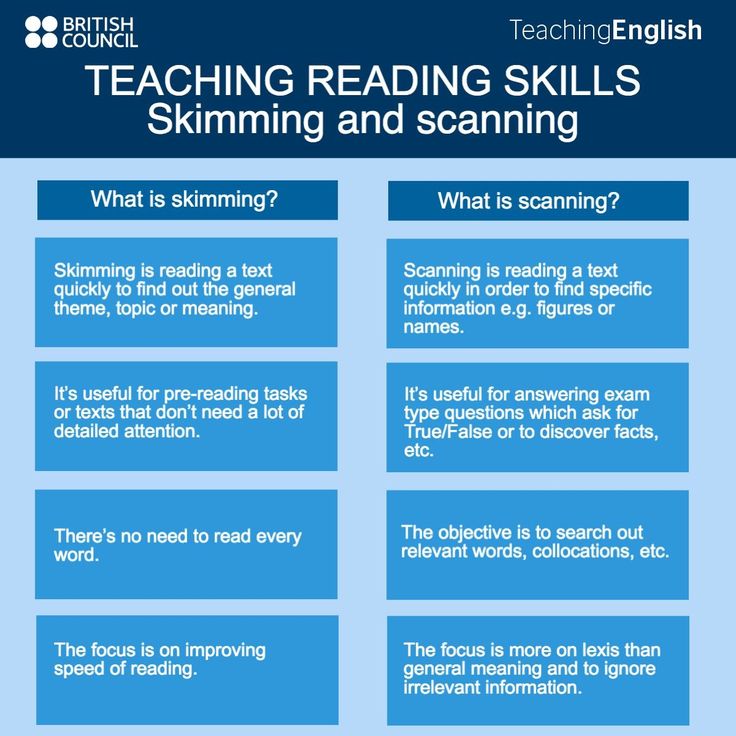Closed compound words
Open and Closed Compound Words: Common Examples and Rules for Spelling
by Yen Cabag | 24 comments
When reading or writing in English, you will notice that two or more words put together can mean a totally different thing.
For example, you may understand the words “old” and “school” when you encounter them separately, but when you put them together, you create a compound word that describes something traditional or old-fashioned.
Learning compound words is a great way to expand your vocabulary. In this post, we’ll explore some of the most common compound words in the English language, along with their meanings.
What Are Compound Words?
Compound words are words that are formed by connecting two or more words together to create a new meaning. They are written in three ways:
- Open compound words: These are spelled as two separate words.
- Closed compound words: These are joined together to form one word.
- Hyphenated compounds: These are two or more words connected by a hyphen.
The challenge is knowing how to spell the words that you need. One way is to simply memorize them, but there are also some qualities that can help you remember how to write them.
Open Compound Words
Open compound words are usually formed when a modifying adjective is attached to a noun, creating a new noun. Take note that it is not simply an adjective describing a noun in a sentence, but instead, the compound is taken as a whole new word.
For example, let’s take the noun school:
- high school: means a completely different thing than just an adjective describing a school;
- new school: is a description of a school that is new, not a compound word;
- old-school: this is a hyphenated compound word that describes something out-of-date, traditional, or old-fashioned (notice the two other hyphenated compound words in this sentence).
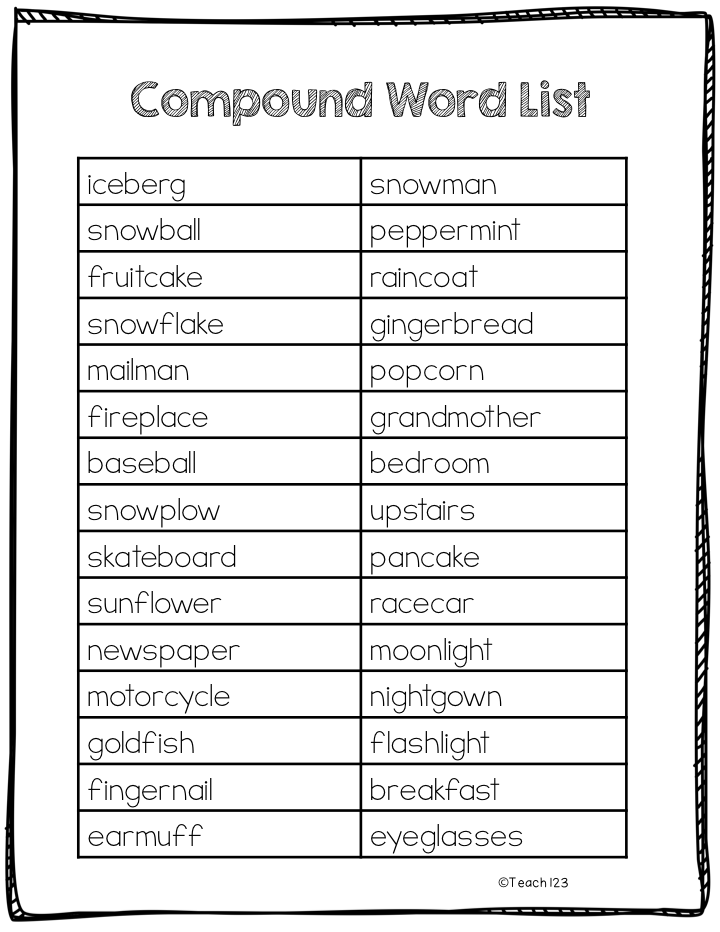
To form open compound words, we separate the modifying adjective from the noun with a space.
For example:
- dining room
- living room
- new moon
- real estate
- coffee table
- paperback book
- racing car
- mountain bike
- jogging pants
- P.E. uniform
- foster mom
- high school
- school bus
- ice cream
- cream cheese
Open compound words are also formed when an adverb ending in -ly is combined with another word:
- newly discovered
- highly contagious
Closed Compound Words
Closed compound words are two or more words that are joined together as one word. Initially, they may not have been joined together, but over time, many of them have come to be accepted as “real words” in English.
For example:
- notebook
- moviegoer
- sunflower
- makeup
- haircut
- newspaper
Hyphenated Compound Words
Compound adjectives are the ones that usually come with hyphens.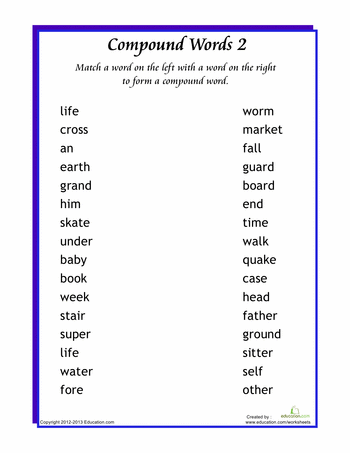 But remember, you only hyphenate them when they come before the noun they modify. If they appear after the noun in the sentence, remove the hyphens.
But remember, you only hyphenate them when they come before the noun they modify. If they appear after the noun in the sentence, remove the hyphens.
For example:
- That was a well-thought-out plan.
- The plan was well thought out.
- He made sure to make politically-correct statements.
- His statements were all politically correct.
Compound nouns that come with hyphens include:
- mother-in-law
- father-in-law
- sister-in-law
- brother-in-law
- attorney-in-fact
How to Spell Compound Words
The best way to learn how to spell compound words is to memorize them, or consult a dictionary. Here is a list of some of the most common compound words and their spellings:
Family members
- stepfather
- stepmother
- stepbrother
- stepsister
- grandfather
- grandmother
- great grandfather
- great grandmother
- mother-in-law
- father-in-law
- sister-in-law
- brother-in-law
Parts of the Home
- living room
- bedroom
- dining room
- bookshelf
- bedside
- nightstand
- cupboard
- bathroom
- sunroof
- teaspoon
- tablespoon
- teacup
- coffee mug
- shot glass
Body Parts
- armpit
- shoulder blade
- backbone
- eyelashes
- eyebrows
- earlobes
- fingernail
- toenail
People and Their Professions
- policeman
- chairman
- fireman
- stuntman
- busboy
- cabdriver
- caveman
- fisherman
- cowherd
- cowboy
- mailman
- milkman
- taxpayer
- teammate
- waterboy
Clothes
- bathrobe
- business suit
- wedding dress
- nightgown
- tennis shoes
- rubber shoes
Vehicles and Related Words
- airplane
- airport
- jet plane
- spaceship
- mountain bike
- race car
Food and Related Items
- ice cream
- ice cream cone
- snow cone
- white wine
- red wine
- milkshake
- cheesecake
- apple pie
- pancake
- French fries
- hamburger
- chocolate chip cookies
- custard cake
- hotdog
- watermelon
- pineapple
- Tupperware
- strawberry
- blueberry
- blackberry
- meatloaf
- grilled cheese sandwich
Business Establishments
- supermarket
- grocery store
- convenience store
- bookstore
- car rental
- online store
- barber shop
- hair salon
Animals and Insects
- butterfly
- dragonfly
- firefly
- praying mantis
- grasshopper
- angler fish
- Persian cat
- golden retriever
- German shepherd
- cocker spaniel
- Yorkshire terrier
- catfish
- stingray
- goldfish
- sunbird
- tailorbird
- kingfisher
- starfish
- jellyfish
- brittle star
- hermit crab
Games
- baseball
- basketball
- football
- volleyball
- pickleball
- table tennis
- lawn tennis
- tennis racket
- badminton racket
- softball
- video game
- virtual reality
- golf cart
- golf balls
- baseball mitt
- baseball bat
- Chinese checkers
Spelling Open and Closed Compound Words
Familiarize yourself with the correct spelling of compound words so you will always know whether to spell them as one word, separate words, or hyphenated words.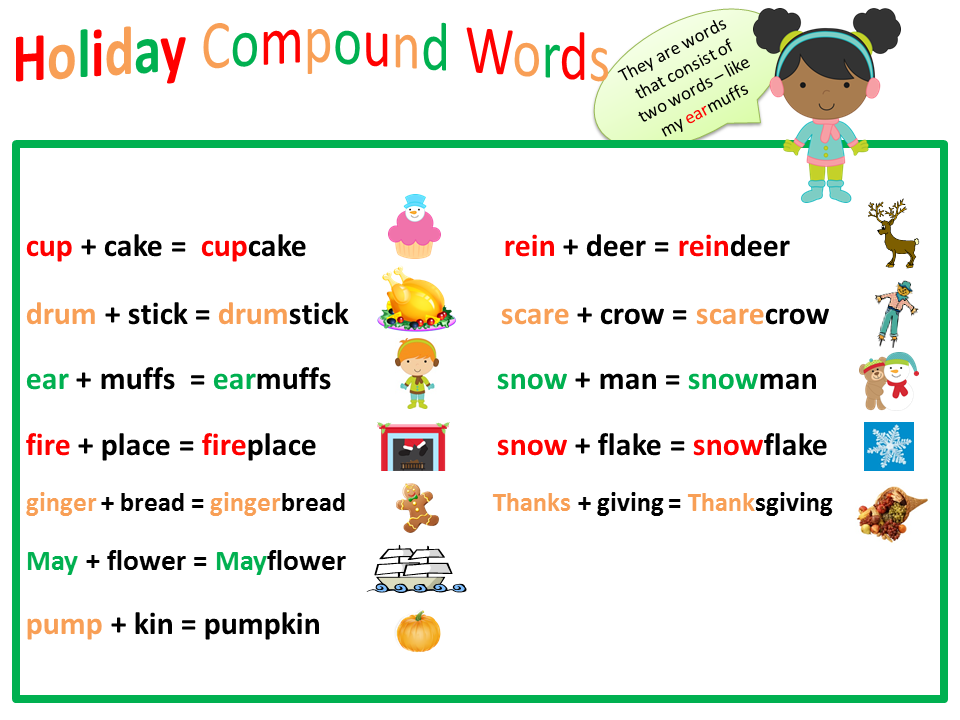
If you’re uncertain, always consult a dictionary, style guide, or a trusted Internet source.
Did you find this post helpful? Let us know in the comments below!
If you enjoyed this post, then you might also like:
- How to Study for a Spelling Test: 8 Tips for Better Results
- American vs. British Spelling: Orthography and Alternate Spellings of Common Words
- How to Spell Better Using the Secrets of Spelling Bee Winners
- Irregular Plural Nouns Explained: Rules and Examples
Yen Cabag
Yen Cabag is the Blog Writer of TCK Publishing. She is also a homeschooling mom, family coach, and speaker for the Charlotte Mason method, an educational philosophy that places great emphasis on classic literature and the masterpieces in art and music. She has also written several books, both fiction and nonfiction. Her passion is to see the next generation of children become lovers of reading and learning in the midst of short attention spans.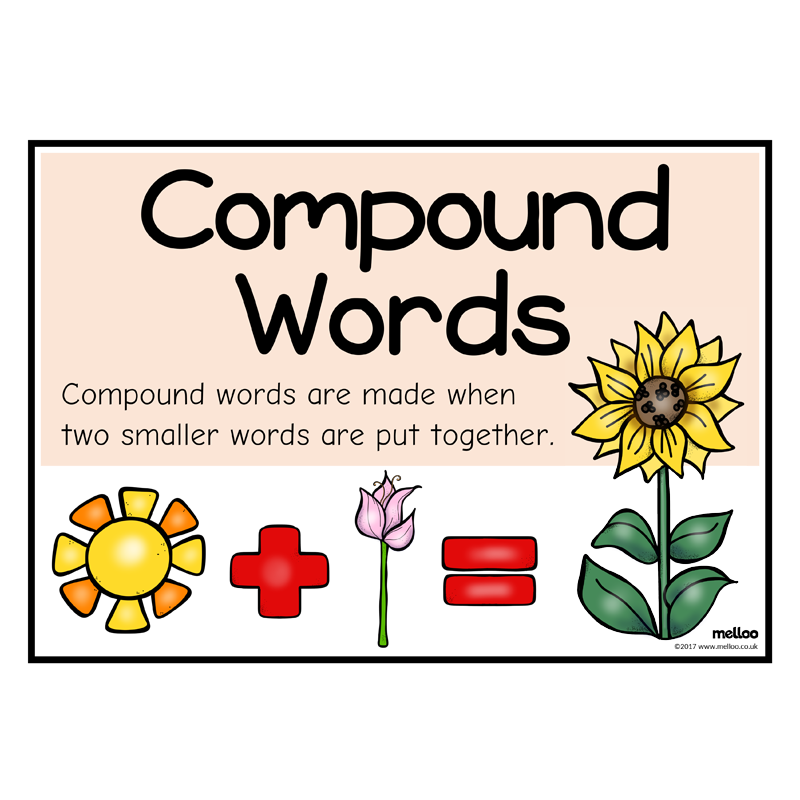
Compound Words: Open, Closed, or Hyphenated?
The lingua franca- English language has multiple characteristics that can be confusing to individuals. Words with multiple forms are used without conscious effort every day (even as you read this blog!). This makes us overlook some core features of different branches of grammar like adjectives, conjunctions, prepositions, etc. that are also a major part of competitive exams. Homophones, homonyms, compound words are word pairs that look and sound alike but have completely distinct meanings. In this blog, we will discuss compound words, how they are formed, and some basic words that may look similar but carry a different meaning.
Did you know? About 4,000 words are added to the dictionary each year and the two most common words in English are I and you.
This Blog Includes:
- What are Compound Words?
- Type of Compound Words
- Open Compounds
- Closed Compounds
- Hyphenated Compounds
- How are Compound Words formed?
- Some Common Compound Words With Their Meanings
- Some day vs.
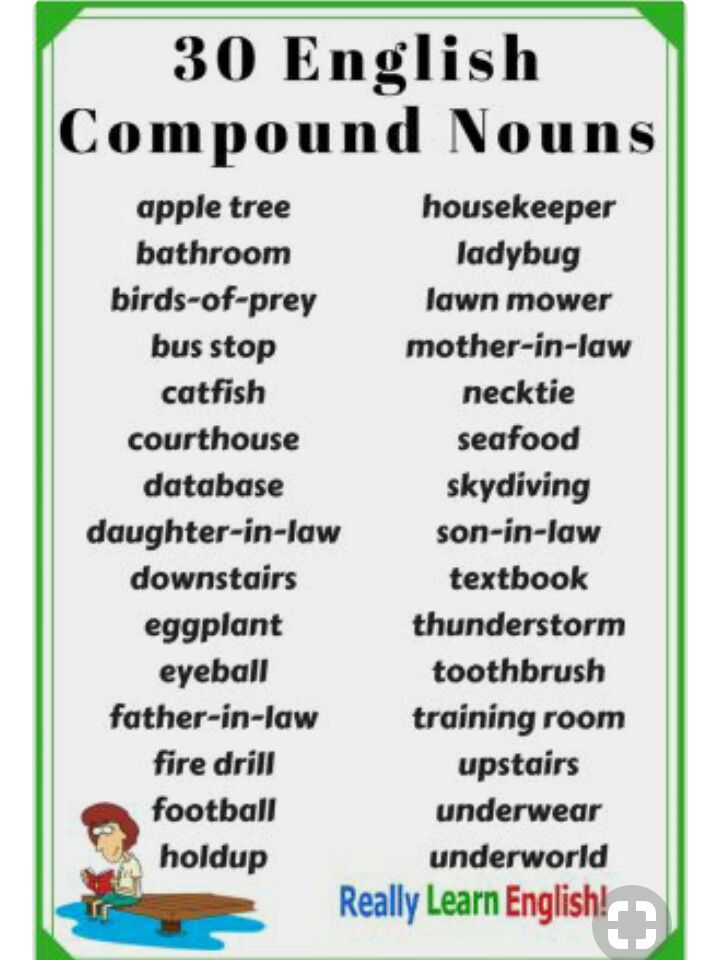 Someday
Someday - Everyday vs. Every day
- Anytime vs. Any time
- Awhile vs. A while
- Sometime vs. Some time
- Some day vs.
- Best Books
- Compound Words Worksheet
What are Compound Words?
Compound words are formed when two words are used together to create a new meaning. Two or more independent words are combined to form a new word with their own distinct meaning in linguistics. Since the English language has evolved and has led to so many compound terms, many individual words have been overlooked.
Type of Compound Words
Compound words can be written in three ways: as open compounds (spelled as two words, e.g., ice cream), closed compounds (joined to form a single word, e.g., Afterlife), or hyphenated compounds (two words joined by a hyphen, e.g., long-term). Sometimes, more than two words can form a compound (e.g., Brother-in-law).
Open Compounds
When the modifying adjective is combined with its noun to form a new noun, the result is an open compound word.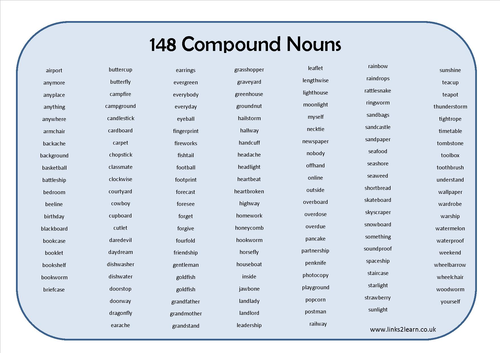 This isn’t the same as using a modifying adjective with a noun. Because we just put a space between the adjective and the noun, it’s sometimes difficult to tell if it’s a compound; nevertheless, if the two terms are frequently used together, it’s a compound.
This isn’t the same as using a modifying adjective with a noun. Because we just put a space between the adjective and the noun, it’s sometimes difficult to tell if it’s a compound; nevertheless, if the two terms are frequently used together, it’s a compound.
For example, School bus, police officer, high school, hot dog, web page.
Closed Compounds
Closed compound words appear to be a single word. These terms weren’t always used together, but they’re now considered a “genuine term” in the English language. The majority of closed compound words are made up of simply two words. Here are some instances of closed compounds.
For example, Birthday, runaway, eyeball, firewall, classmate.
Hyphenated Compounds
There are a lot of things to remember when it comes to hyphenated compound words. The most important thing to understand is that an open compound word will almost always be hyphenated if it is used to modify another noun. Hyphens are also commonly used before a participle or a word formed from a verb when a compound adjective is placed before it.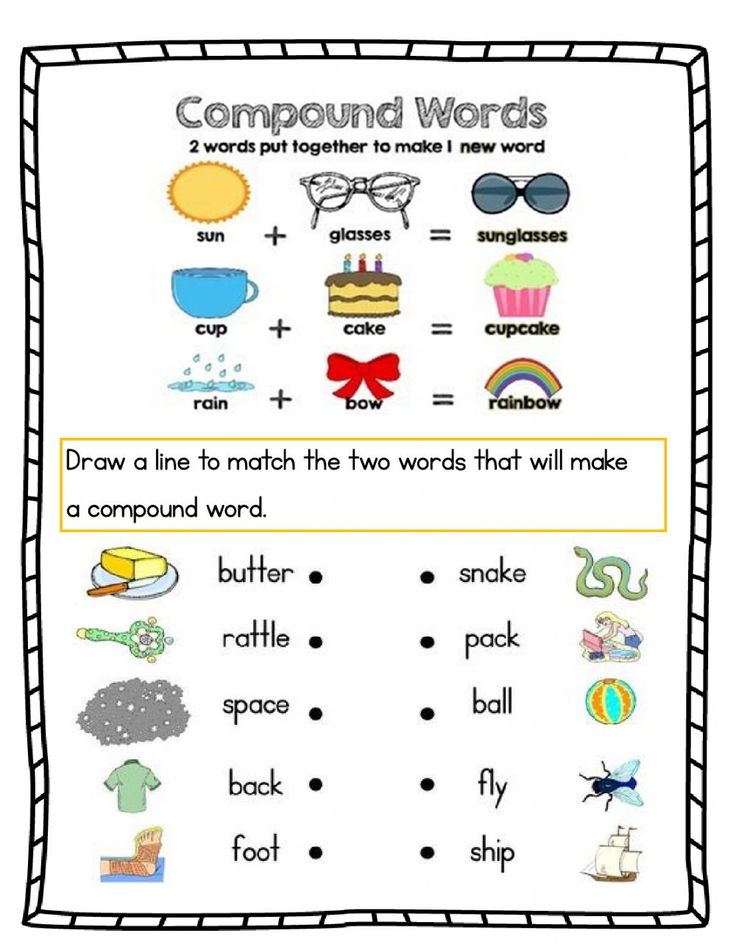 These terms can also be used to alter a noun.
These terms can also be used to alter a noun.
For example, follow-up, well-being, two-faced, get-together, self-esteem, Check-in.
Credits: PeriwinkleHow are Compound Words formed?
Compound words, like many other aspects of the English language, are the outcome of language evolution. When two words are often used together in speech and writing, they become increasingly close in meaning over time. Typically, this occurs first in speech and then in writing, where compounds are recognized as words in their own right.
The closed compound word notebook is a good example of this. We would have called it “a book to write notes in” before the word “notebook” was introduced.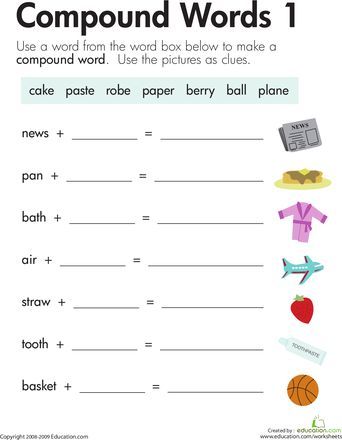
However, sometimes compounds are produced as a result of a language gap. For example, the word football would have been coined out of necessity because the game would have lacked a name, to begin with. The act of kicking the ball with the foot is thought to be the origin of this compound, which is a compound of foot and ball.
Some Common Compound Words With Their Meanings
Compound words, which can be one or two words long, can be particularly confusing. someday vs. some day, everyday vs. every day, anytime vs. any time, awhile vs. a while, and sometime vs. some time are four of the most confusing word pairings. Let’s see how these words look similar but carry different meanings.
Some day vs. Someday
“Someday” – This compound word is an adverb that implies “at some unspecified future period.”
“Someday” – Someday is both an adjective and a noun. Some phrases mean “unknown” or “unspecified.” When used with the word day, it refers to a single unnamed day.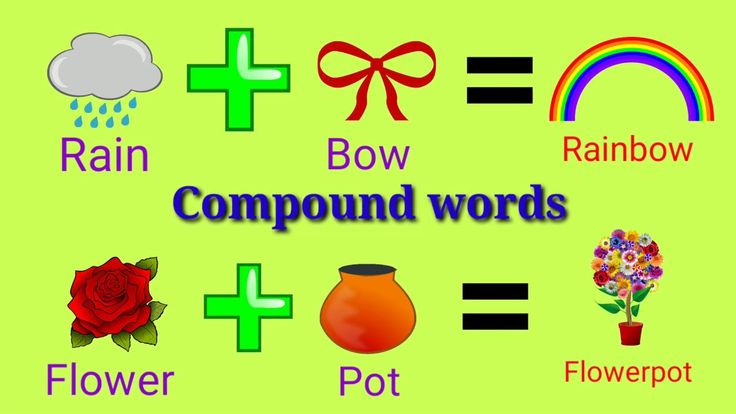
Everyday vs. Every day
“Everyday” can be used as both a noun and an adjective. It expresses the mundane, the everyday. The two-word phrase “every day,” on the other hand, denotes a period of time.
Anytime vs. Any time
We’re talking about the difference between “at any time” (whenever) and just “any time.” Use the adverb “anytime” if you want to convey the notion “at any time.” Keep the terms separate if you’re simply going to use “any time.
Awhile vs. A while
It’s simpler to comprehend the difference between a while and awhile now that we’ve gone over the difference between anytime and any time. Our adverb here is “awhile,” which signifies “for a while.” To communicate “sit down and remain for “a while”, you can write “sit down and stay awhile.”
Sometime vs. Some time
Sometime is an adverb. It’s used to convey an undetermined period of time or an uncertain future time. The terms “some time” (both an adjective and a noun) refer to a period of time, usually one that is quite long.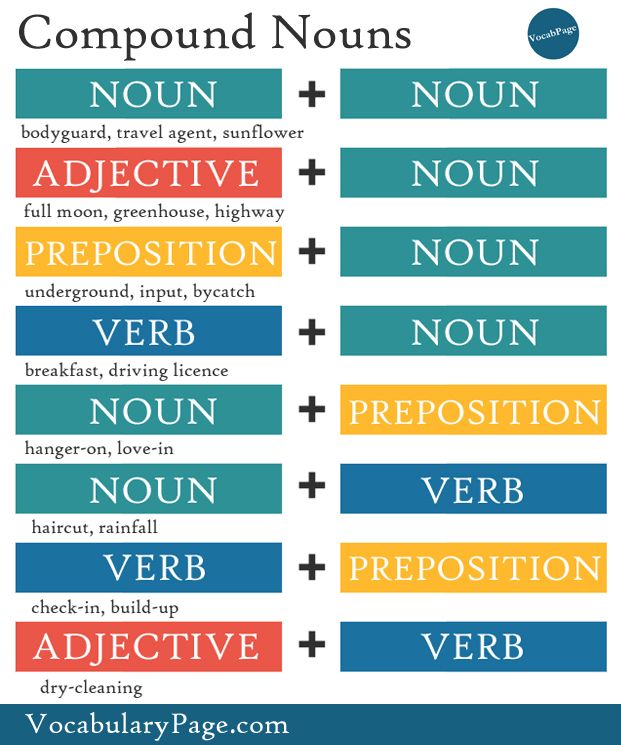
For example, It’s the difference between “let’s get together sometime” and “it’s been some time since the old friends have spoken.”
Best BooksGiven below are some of the best books that can be considered to lean more about compound words
| Books | Links |
| Thumbtacks, Earwax, Lipstick, Dipstick: What Is a Compound Word? (Words are Categorical) | Click Here to Buy! |
| Developing Writing Skills for IELTS: A Research-Based Approach | Click Here to Buy! |
| Word Power Made Easy | Click Here to Buy! |
Compound Words
WorksheetQ1.___ of the children are French.
- One third
- Onethird
- One-third
Q2.Which ___ do you go to?
- highschool
- high-school
- high school
Q3 I need to get a ___.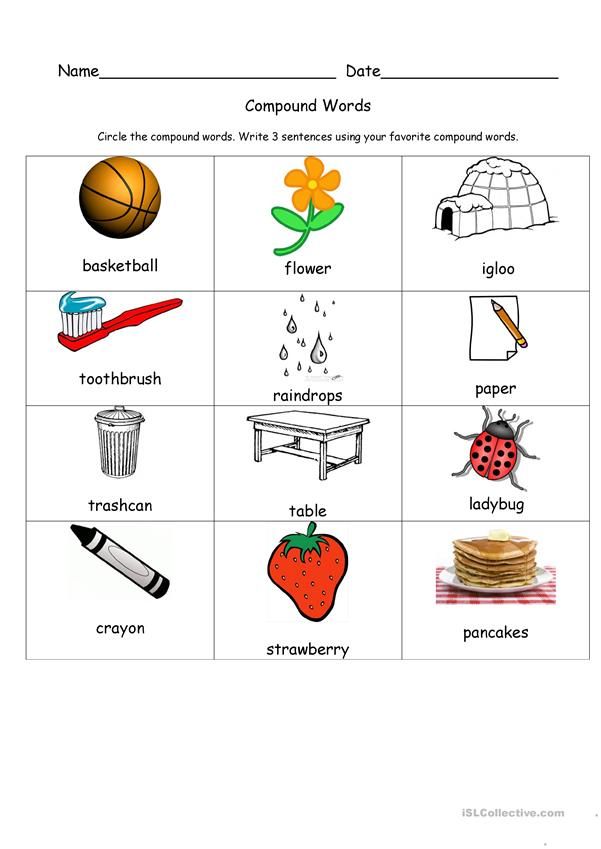
- hair-cut
- hair cut
- haircut
Answers:
Q1. one-third
Q2. high school
Q3. haircut
In this blog, we discussed Compound Words in-depth, hope the information provided was helpful. You can make your ideas more fascinating and descriptive for the reader by using compound terms in your writing. Using too many compounds, especially hyphenated compound terms, can be complex; therefore, use compound terms carefully. For more educational content, stay connected with us at Leverage Edu!
Two-syllable words are... Syllable division (examples)
Two-syllable words are words in which two vowels form two syllables
The number of phonetic syllables in a word depends on how many vowels it contains. The vowel sound is syllabic. It can form an independent syllable or one or more consonants are grouped around it and form a syllable.
Ex.0012
The above words contain two vowels, respectively, they form two phonetic syllables. We call such words two-syllable words.
Two-syllable words contain two vowels that form the same number of phonetic syllables in them.
Examples of disyllabic words
Valve, heart, rag, roof, bank, kidney, pocket, door, lock, sun, sky, arm, leg, question.
Learn to divide two-syllable words into syllables
To divide a word into phonetic syllables, you need to take into account that syllables are different in their sound composition.
It can have both open and closed syllables.
Open syllable
Open syllable constitutes a consonant with a vowel or only a vowel. Most syllables in Russian are open.
Examples
ko-ra, du-ma, bu-rya, merge-va, kro-na, quarrel-ra, ki-no, re-ka
Two-syllable words "ba-nan", "ve-ter", "glo-bus" consist of the first open syllable and the second closed one.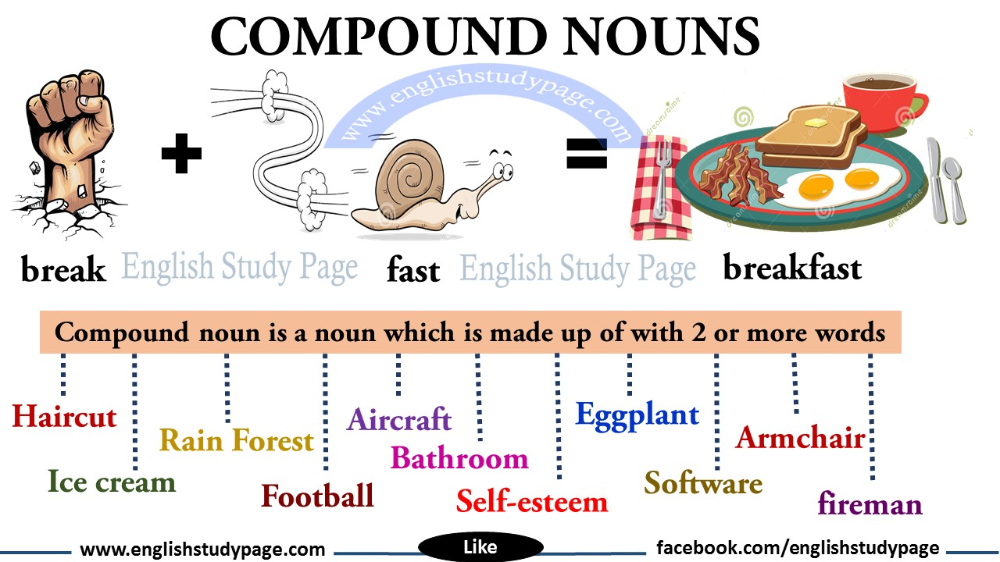
Closed syllable
Closed syllables form all consonants at the end of words, as well as voiced unpaired consonants [d'], [l], [m], [n], [r] and their soft pairs [l'] , [m '], [n '], [p'], located both in the middle and at the end of the word.
A sonorant consonant in the middle of a word goes to the first syllable. With this in mind, we divide two-syllable words into phonetic syllables:
| ka; | ; |
| to l to - to l -to; | per l ka - per l ka; |
| ba m beech - ba m - beech; | ca m bo - ca m -bo; |
| ka n va - ka n -va; | sa n ki - sa n -ki; |
| a r buz - a r - buz; | kva r tal - kva r - tal.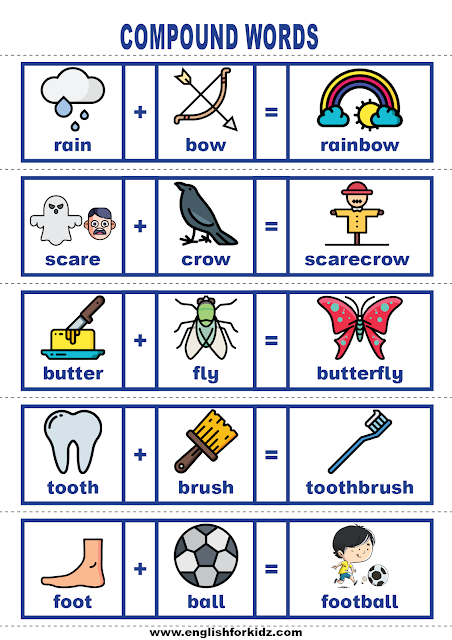 |
It is more difficult to syllable two-syllable words in which several consonants occur in the middle. If the initial syllable of a two-syllable word is a vowel or consonant with a vowel, two consonants with a vowel, then they form the first open syllable. It is followed by cluster deaf consonants or a combination of deaf and voiced , two voiced consonants, except for sonorants. They form the second syllable, for example:
| board - do- sk a; | bl sn a - ble - sn a; |
| ko st yor - ko- st yor; | ma sk a - ma- sk a; |
| cre st ik - cre- st ik; | May Thu a - May Thu a; |
| to Thu a - Thu a; | other wb a - friend wb a.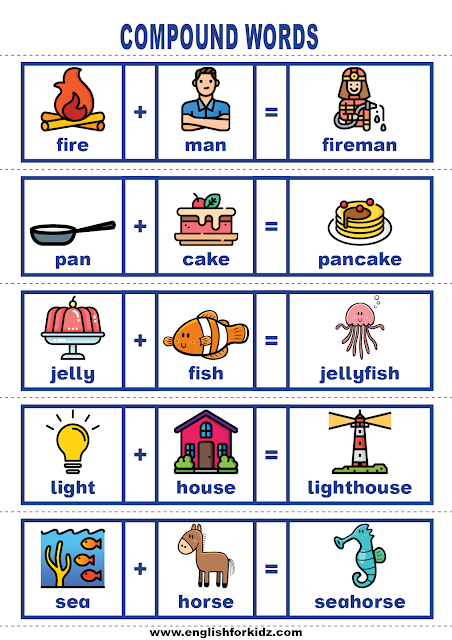 |
How to transpose disyllabic words?
Two-syllable words with open syllables and closed syllables that form unpaired voiced consonants are hyphenated according to phonetic syllable division. nine0005
Examples
ru-ka, face, ko-ra, pear-sha, li-ra, eyes-za, rei-ka, mai-ka, man-ka, lar-chik, balcon
We will take into account the fact that some two-syllable words with a cluster of consonants in the middle can be transferred both along the phonetic syllable division and by breaking up this combination of consonants, for example:
- d
- heart - heart, heart;
- violin - violin, violin.
Additional material
Learn more about the rules of spelling hyphenation.
Some two-syllable words begin with syllable-forming vowels.
Examples
a-rest, a-nons, o-tek, o-zone, o-beef, u-part, u-dav, i-rice, i-va, i-dol
These words we write entirely on the line, since one letter cannot be torn off from the word.
Open and closed syllables in English for children
The rules for reading English words involve the analysis of all types of syllable vowels. And this is already at the very beginning of language learning! Let's deal with the two most popular types of syllables together: open and closed. Below you will find the rule, examples and exercises for training. nine0005
Help! There are 26 letters in English, of which 20 are consonants and 6 are vowels. However, there are many more sounds in English: 24 consonants and 15 vowels. Therefore, it is simply physically impossible for the rule “1 letter = 1 sound” to work. For this, reading rules were invented, one of which is the openness and closeness of the syllable.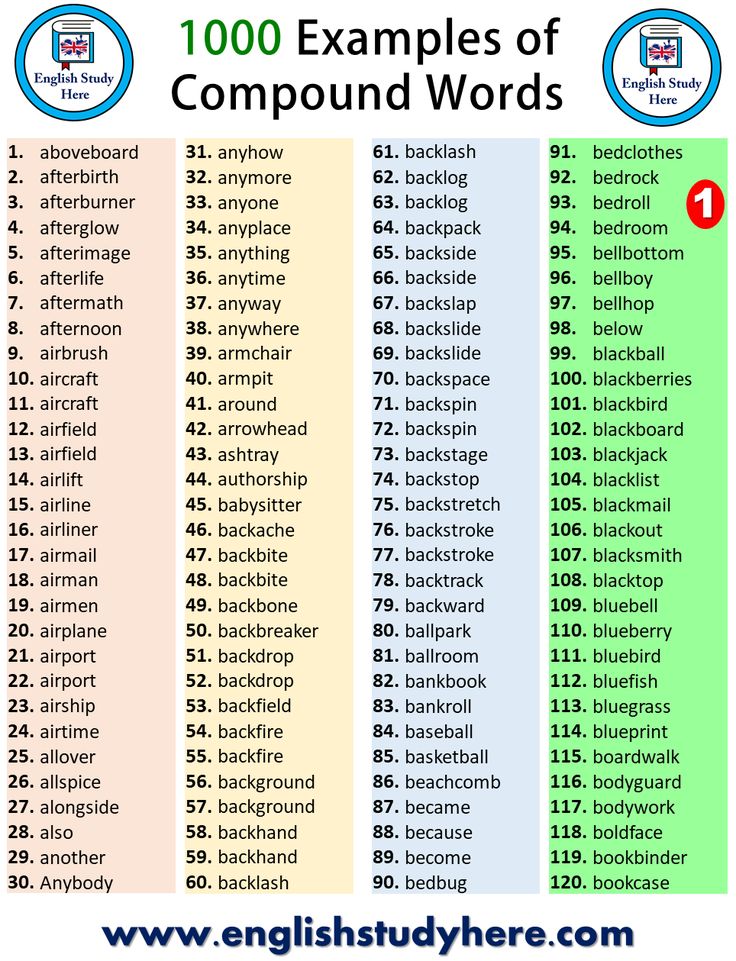
What is an open syllable?
The most important thing to learn is that the open syllable ends in the vowel . For example:
- to -tal, ri -val, bi -ble, mo -tor.
Here are a few features worth remembering:
- Words with a mute "e" at the end of the word also belong to the open syllable type. For example: take [teɪk], kite [kaɪt], toe [təu] .
- Some monosyllabic words are also open syllables. For example: me [mɪ:], he [hɪ:], no [nəu], go [gəu].
- When divided into syllables, the combination "consonant + le" is considered a separate syllable, so the vowel before such a combination will be in an open syllable. For example, able [eɪbl], idle [aɪdl].
How are vowels read in an open syllable?
The vowel is pronounced the same as in the alphabet .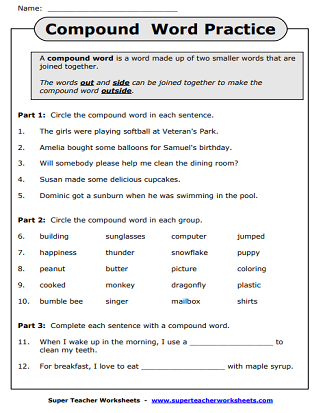 The exception is the letter "y", which repeats everything after the letter "i". Recall how it works.
The exception is the letter "y", which repeats everything after the letter "i". Recall how it works.
- The letter "A" is read as [eɪ] . For example, fame [feɪm] - glory, baby [‘beɪbɪ] - a child.
- The letter "O" is read as [əu]. For example, note [nəut] - note, open [‘əupn] - open.
- The letter "E" is read as [ɪ:] (long "and"). For example, we [wɪ:] - we, Pete [pi: t] - Petya.
- The letters "I" and "Y" are read as [aɪ]. For example, ice [aɪs] - ice, fly [flaɪ] - fly.
- The letter "U" reads [ju:] For example, cute [kju:t] is cool, museum [mju:’zi:əm] is a museum.
After the sounds [r], [l], [dʒ], we only read [u:]. For example, rule [ru:l] is a rule, flute [flu:t] is a flute, June [dʒu:n] is June.
What is a closed syllable?
The closed syllable always contains 1 vowel + 1 or more final consonant.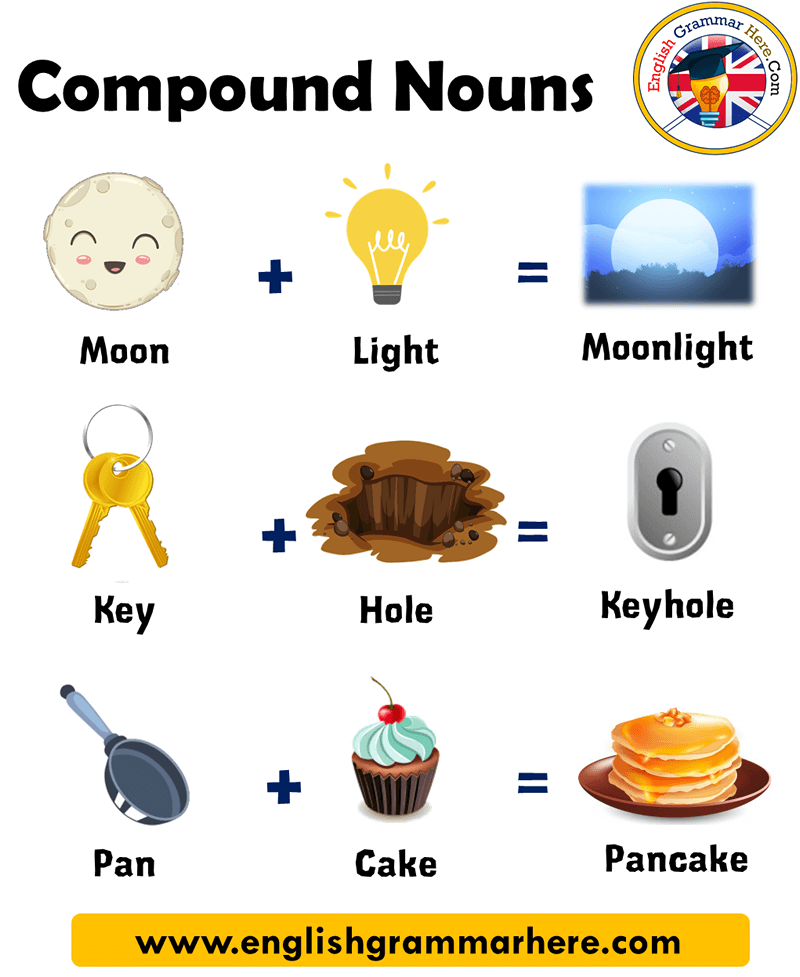 The vowel in this case is read briefly:
The vowel in this case is read briefly:
- p i t, c - ck, - ncle.
Rules for reading vowels in a closed syllable
- The letter "A" is read as [æ]. For example, cat [kæt] - cat, apple [æpl] - apple.
- The letter "O" is read as [ɔ]. For example, dog [dɔg] - dog, common [‘kɔmən] - common.
- The letter "E" is read as [e] . For example, nest [nest] is a nest, egg [eg] is an egg.
- The letters "I" and "Y" are read as [ɪ] . For example, pin [pɪn] is a pin, gym [dʒɪm] is a gym.
- The letter "U" is read as [ʌ] . For example, run [‘rʌn] - run, blush [blʌʃ] - blush.
A few features
- If the letter "Y" takes an unstressed position at the end of a word, then it also gives a short sound [i]: truly, ugly, spicy.
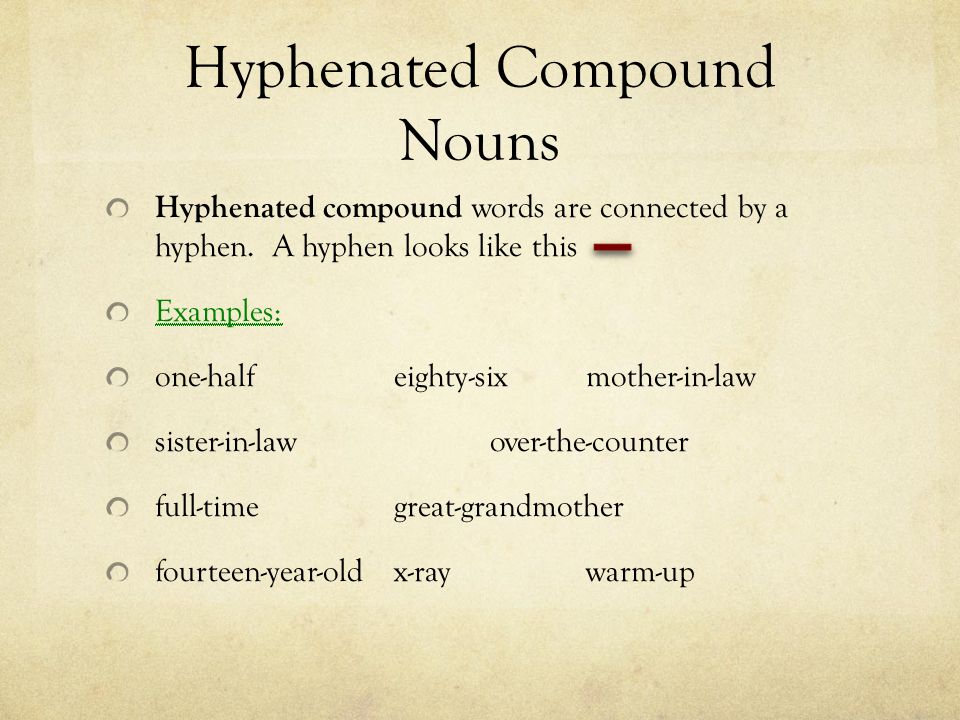
- Despite the “closedness” of the syllable, the letter “U” in some words will be read openly, they just need to be remembered: push, put, pull, bush, bull.
- The letter “O” before the -st combination is also read in an open type: most, post, host.
Semeded Vowel Reading in open and closed syllable
| Glavic letter | Open Slog | |
| [Eɪ] | [æ æ æ æ æ][iː] | [e] |
| I i, Y y | [Aɪ] | [ɪ] |
| O | [əʊ] | [ɔ] |
| U U | [Ju:] | [ʌ] |
How to explain the difference between open and closed syllables to children?
First, children must clearly understand the difference between open and closed syllables. Here, the more visually demonstrated, the better.
Here are more examples of pictures for younger children for each letter:
Here is another video on the topic:
Do not try to read complex words with your child.